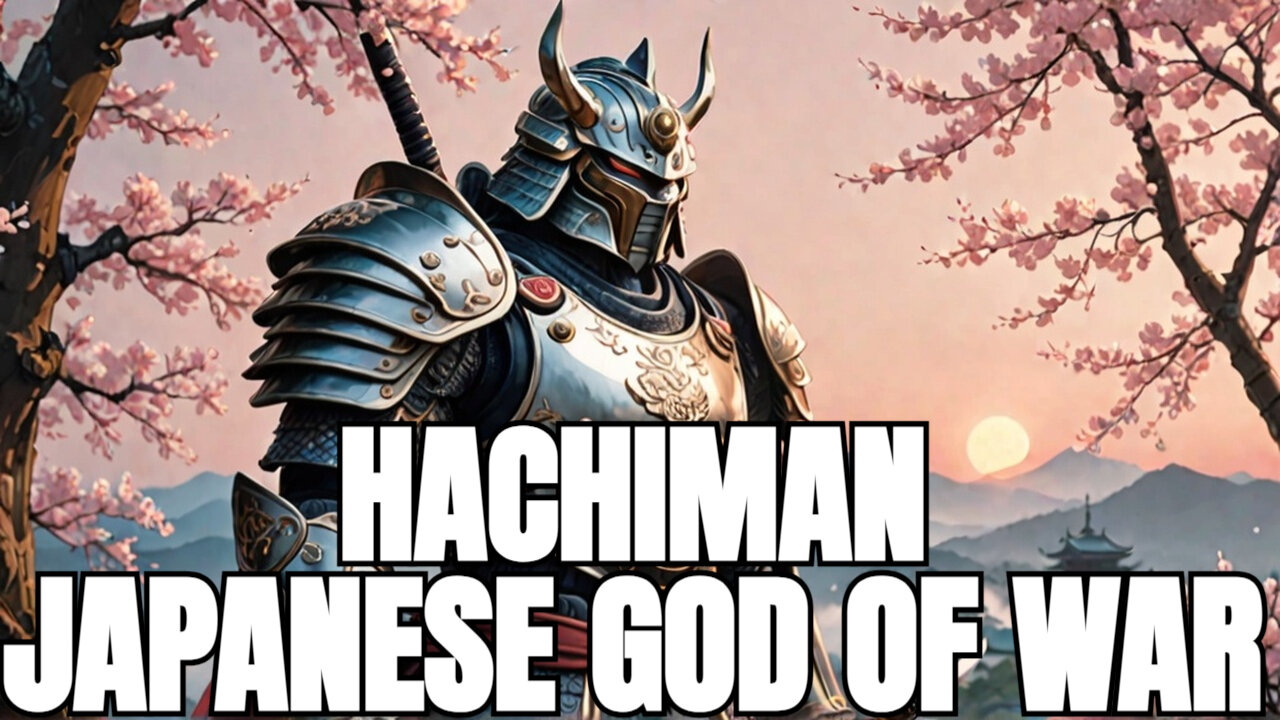Premium Only Content

We Learn About Hachiman: The Divine Protector and God of War in Shinto Mythology
We Learn About Hachiman: The Divine Protector and God of War in Shinto Mythology
When we think of gods of war, names like Ares and Mars might come to mind. But in Japanese mythology, Hachiman holds a unique place as both a war deity and a divine protector of Japan and its people. So today, we're going to learn about Hachiman the God of War and talk about his history and significance.
The Origins of Hachiman
Hachiman’s story begins not as a god of war, but as an agricultural deity. Initially revered for his influence over farming and agriculture, Hachiman’s role evolved over time, reflecting the changing needs and values of Japanese society. His transformation from an agricultural deity to a god of war illustrates the dynamic nature of mythological figures and their ability to adapt to cultural shifts.
In one myth, Hachiman's birth is tied to the divine union of the Shinto deities Amaterasu, the sun goddess, and Susanoo, the storm god. This union symbolized the harmony between the forces of light and storm, essential for the prosperity of the land. According to this legend, Hachiman was born from this sacred union, inheriting the strength and protective nature of Susanoo and the benevolence and light of Amaterasu. This dual heritage is believed to be the source of Hachiman's unique role as both a fierce warrior god and a benevolent protector.
Hachiman as the God of War
Hachiman’s rise to prominence as the god of war is deeply intertwined with Japanese history. He became a symbol of military prowess and protection, embodying the virtues of bravery, strength, and honor. As a war deity, Hachiman was believed to grant victory and protection to warriors, making him a revered figure among the samurai class. His influence extended beyond the battlefield, serving as a moral guide for those who sought his favor.
-
 LIVE
LIVE
Matt Kohrs
8 hours agoMARKETS CRASH: The DeepSeek Panic || The MK Show
1,985 watching -
 39:56
39:56
BonginoReport
2 hours agoTrump Alpha-Males Colombia (Ep.126) - 01/27/2025
18.9K35 -
 LIVE
LIVE
Jeff Ahern
1 hour agoMonday Madness with Jeff Ahern (6am Pacific)
569 watching -
 1:21:30
1:21:30
Game On!
10 hours ago $1.26 earnedPatrick Mahomes does it AGAIN!
7.83K2 -
 15:20
15:20
Misha Petrov
2 hours agoReacting To Liberal MELTDOWNS Over Trump’s Return - Gen Z Is Planning a REVOLUTION?!
14.3K12 -
 18:22
18:22
Neil McCoy-Ward
2 hours agoThe 🇨🇴 Colombian President Just Learned The HARD WAY!!! (Another Win For The USA 🇺🇸)
13.3K8 -
 1:56:04
1:56:04
TheDozenPodcast
17 hours agoMass deportations, Islamists, Saving the UK: Nick Tenconi
25K18 -
 35:24
35:24
Survive History
22 hours ago $9.10 earnedCould You Survive in a Cavalry Regiment During the English Civil War?
90.6K9 -
 28:15
28:15
Degenerate Plays
16 hours ago $4.48 earnedTwo Birds' Secret Meeting - Gotham Knights : Part 26
73.1K6 -
 12:29
12:29
Mr. Build It
5 days agoWish I Knew This Before I Started Building It
69.1K26